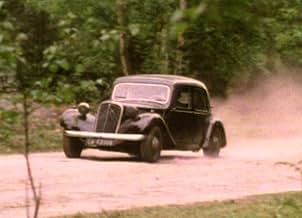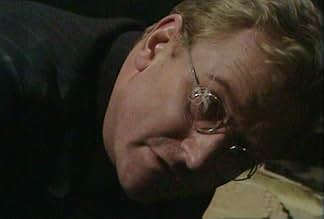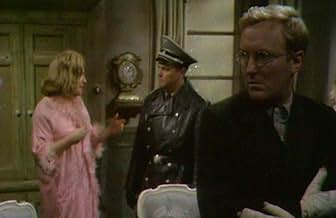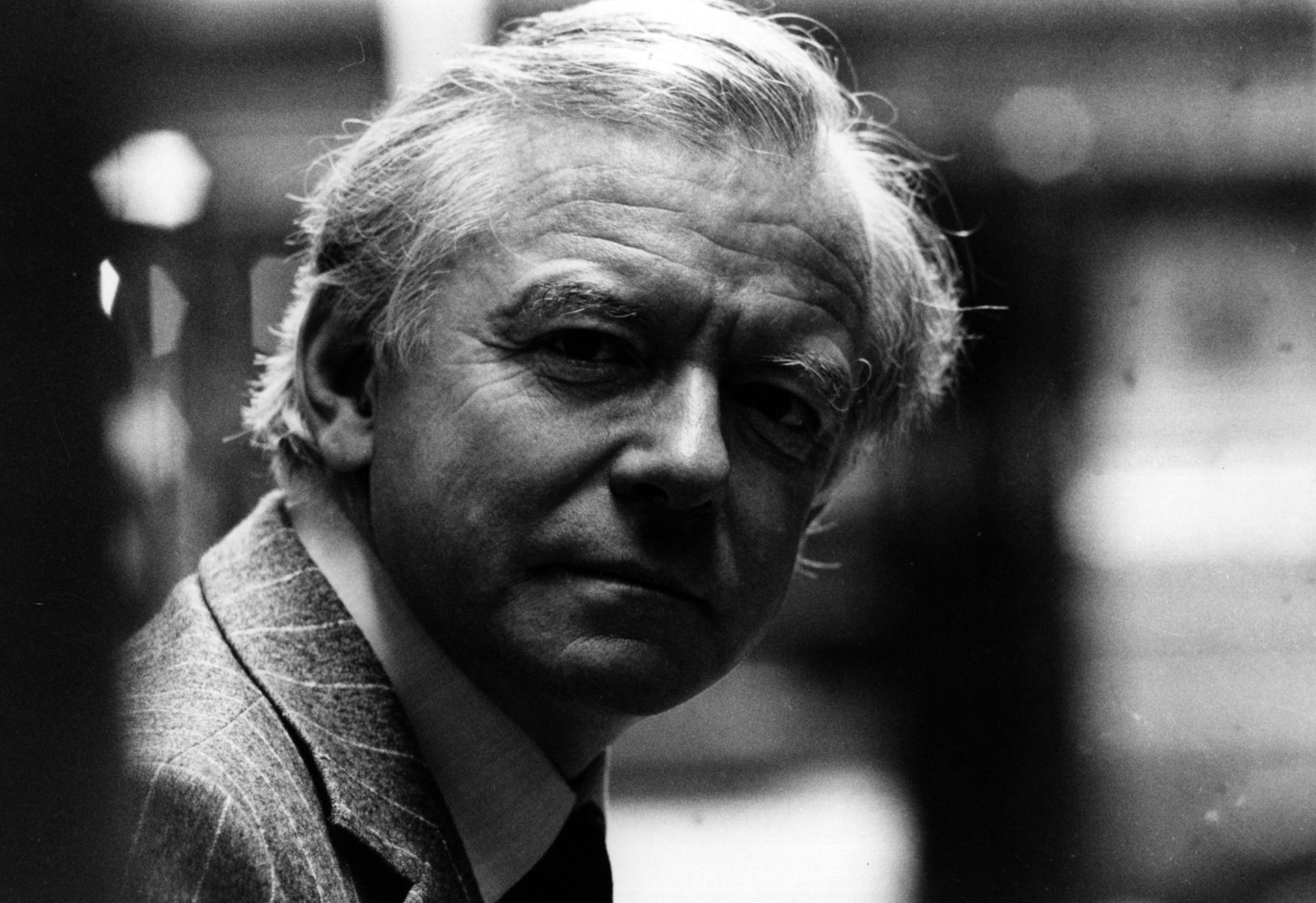Füge eine Handlung in deiner Sprache hinzuIn 1942, British pilot Jimmy Briggs crashes his aeroplane in occupied France and immediately finds himself on the run from the Nazis.In 1942, British pilot Jimmy Briggs crashes his aeroplane in occupied France and immediately finds himself on the run from the Nazis.In 1942, British pilot Jimmy Briggs crashes his aeroplane in occupied France and immediately finds himself on the run from the Nazis.
Folgen durchsuchen
Empfohlene Bewertungen
TPTV brought us a great BBC wartime series in Secret Army,so I hoped that this would be just as good. Sadly I was very disappointed. It is unbelievably bad. Every aspect of this series is below par. The writing is truly abysmal. The characters are all stereotypes. Phillip Madoc as the AS officer is almost identical to his naval officer in Dad's Army .
Each week they seem to be running almost aimlessly across fields. Most of the episodes contain a lot of talk with a small amount of action at the end. The series seems to be underfunded as there are barely a handful of German soldiers in evidence at any given time.
Each week they seem to be running almost aimlessly across fields. Most of the episodes contain a lot of talk with a small amount of action at the end. The series seems to be underfunded as there are barely a handful of German soldiers in evidence at any given time.
This is a great example of what can be done on a small budget.
A great cast, including a sleazy pre-Blakey Stephen Lewis are set adrift somewhere in France. Set work is minimal, with the three main protagonists usually running through what appears to be the same field.
In one episode, there is a nod to Greek tragedies, in that the action is taking place outside, with only the actors narrative telling the cast and viewers what is happening.
I remember parts of this series first time round and wanted to see how it panned out. Time fades the memories.
Some may be shocked mainly by Jimmy's misogynistic attitude and Nina's acceptance of what he says.
That noted, good to see a well written drama, with some great acting.
A great cast, including a sleazy pre-Blakey Stephen Lewis are set adrift somewhere in France. Set work is minimal, with the three main protagonists usually running through what appears to be the same field.
In one episode, there is a nod to Greek tragedies, in that the action is taking place outside, with only the actors narrative telling the cast and viewers what is happening.
I remember parts of this series first time round and wanted to see how it panned out. Time fades the memories.
Some may be shocked mainly by Jimmy's misogynistic attitude and Nina's acceptance of what he says.
That noted, good to see a well written drama, with some great acting.
Prior to 'Manhunt', the majority of films about the French Resistance, certainly in Britain and America, were very simplistic boy's own adventure stuff about plucky men (and sometimes women), with little exploration of the issues relating to collaboration and resistance. 'Manhunt' changed all that.
Of course, it helped that it had literate scripts, fascinating characters, and superb performances. It was an instant T.V. 'hit'. But it was a superb history lesson. It showed the resistance movement as a collection of individuals with a variety of motives - Communists, Gaullists, evaders from labour service, and people with personal motives. They distrusted each other sometimes, and saw other groups as rivals. Similarly, the Germans were not monolithic. The S.S. and Gestapo hated the Abwere, and vice versa.
The most interesting character was Graz, the Abwhere intelligence officer, for he was on the fringe of the anti-Nazi resistance movement.
Consequently, you never really knew what happened from one episode to the next. That was what made it so exciting and watchable.
The series proved so popular that it was extended beyond the anticipated number of episodes.
In many ways 'Manhunt' prefigures themes in 'Army of Shadows' and 'Soldier of Orange'.
Of course, it helped that it had literate scripts, fascinating characters, and superb performances. It was an instant T.V. 'hit'. But it was a superb history lesson. It showed the resistance movement as a collection of individuals with a variety of motives - Communists, Gaullists, evaders from labour service, and people with personal motives. They distrusted each other sometimes, and saw other groups as rivals. Similarly, the Germans were not monolithic. The S.S. and Gestapo hated the Abwere, and vice versa.
The most interesting character was Graz, the Abwhere intelligence officer, for he was on the fringe of the anti-Nazi resistance movement.
Consequently, you never really knew what happened from one episode to the next. That was what made it so exciting and watchable.
The series proved so popular that it was extended beyond the anticipated number of episodes.
In many ways 'Manhunt' prefigures themes in 'Army of Shadows' and 'Soldier of Orange'.
Excellent (1969) series with dialogue and meaning well before its time....low budget but the crew and actors made the most of it.
Some reviewers have panned this series, but it is theatre, FGS, not a documentary. What I love about it is the dialogue - a long gone cultured English that is intelligible - whether the action is in French, German, or English it remains in English - and that suits me. The performance of Robert Hardy as the ambivalent Abweht sergeant Gratz is a tour de force. He is moving, funny, frightening and human. Poor Nina (the gorgeous Cyd Hayman) ! Men either want to sleep, torture, or kill her. And the sinister Obersturmbanführer played by Philip Madec (don't tell him Pike) is terrifying.
There are of course, to our contemporary sophisticated eyes sole ludicrous. Moments, but you have to expect that is dramas of that period - think of Olivier's performance as Othello that evokes laughter today with its West Indian mimicry. The dialogue written for Gratz never varies in its brilliant portrayal of his wit and cunning.
I recommend it heartily,-you do not need subtitles to clarify the sloppy diction of today's actors, or the risible portrayal of the upper classes by bit players from East Enders.
There are of course, to our contemporary sophisticated eyes sole ludicrous. Moments, but you have to expect that is dramas of that period - think of Olivier's performance as Othello that evokes laughter today with its West Indian mimicry. The dialogue written for Gratz never varies in its brilliant portrayal of his wit and cunning.
I recommend it heartily,-you do not need subtitles to clarify the sloppy diction of today's actors, or the risible portrayal of the upper classes by bit players from East Enders.
Wusstest du schon
- WissenswertesThe series opens in September 1942, as Squadron Leader James Briggs' Spitfire crashes ten miles north of Bracieux in Occupied France. The series concludes six months later, according to dialogue in The Losers (1970).
- PatzerJimmy Briggs (Alfred Lynch) is shot down in his Spitfire and states he is a member of 44 Squadron. 44 Squadron was in fact a bomber squadron, flying first the Handley Page Hampden and then the Avro Lancaster.
Top-Auswahl
Melde dich zum Bewerten an und greife auf die Watchlist für personalisierte Empfehlungen zu.
- How many seasons does Manhunt have?Powered by Alexa
Details
- Laufzeit1 Stunde
- Farbe
- Seitenverhältnis
- 1.33 : 1
Zu dieser Seite beitragen
Bearbeitung vorschlagen oder fehlenden Inhalt hinzufügen




































